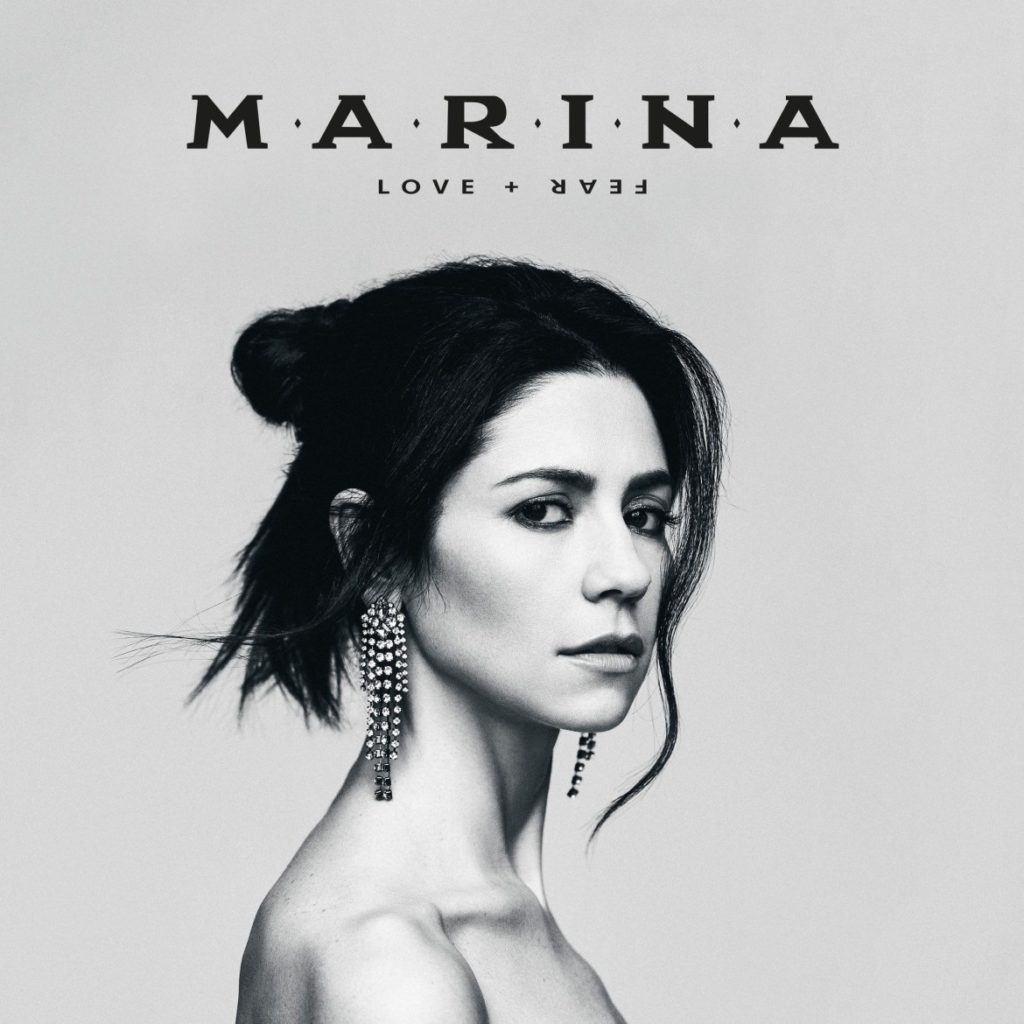My Queen, Reawakened: Marina Returns Without the Diamonds
After a four-year hiatus, Marina Diamandis opens her latest album with the line, “I envy the birds high up in the trees; they live all their lives so purposefully.” She had taken a break after her six-year career as a pop star to self-reflect on her own needs— she enrolled in psychology classes at the University of London, she kept a blog about her mental health, and she focused on what she needed to prosper as a human being.
With her two-part album called “Love + Fear,” Marina Diamandis moves on from the persona she used for years, Marina and the Diamonds, growing into herself and the messy emotions of the human experience— without “the Diamonds,” this time.
As far as concept albums go, it’s difficult to beat Marina’s “Electra Heart” from 2012, where she explored gender through the use of female archetypes. With these characters— like the “teen idle,” the “homewrecker,” and the “housewife”— Marina explored the way she feels called to fall into these categories to avoid the emptiness of her insecurities.
While it’s hard to top her 2012 pity- party classic, Marina’s latest album is a whole other breed. It’s through- and-through pop music, like “Electra Heart” and her 2015 album “Froot,” but it hits differently with a wider analysis of the human condition.
Informed by her recent enrollment in university to study psychology, “Love + Fear” is based on Elizabeth Kübler Ross’s idea that all human emotions fall into one of these two emotional categories. She believed that all positive emotions were a form of love and all negative emotions were a form of fear.
Marina explores this concept in her two-part album: the first eight tracks are about love and the second eight are about fear. But she doesn’t place emotions into this simple binary and instead explores the nuances of these two states of being.
With the opening track “Handmade Heaven,” she expresses her longing to live simply and in tune with nature, and she resents the busy world around her that keeps her from doing so. But she resigns to self-care, crafting her own “handmade heaven,” in which she can prosper.
The following tracks, “Superstar,” “Orange Trees,” and “Baby” were all released as singles before the release of the full album, and they’re all pop classics. Frankly, I was obsessed with “Baby” when it was released in November, and it remains one of my favorites on the album. While it sticks out from the flow of the album, it honestly slaps harder than anything she’s ever put out, and the reggaeton beat brings some dancey fun to the record.
“Enjoy Your Life” and “True” can get admittedly preachy, but Marina is practically my mother, so I don’t mind. As she sings, “Sit back and enjoy your problems, you don’t always have to solve them,” I can’t help but dance, and it serves as a reminder that we don’t have to live in survival mode.
My favorite track of the whole album is “End of the Earth,” which serves as the last of the eight tracks about love. The first time I heard the beat of this song, I literally stopped walking and had to catch my breath. The production is incredible, with beautiful synth instrumentation over Marina’s vocal harmonization. “And I’ll give my love, I don’t care if it hurts,” she sings, adding a dimension to her love that’s also self-destructive.
When the synths distort and fill the speakers with spacey, chaotic sound that almost sounds violent, Marina’s vocals shine through the noise. She sings, “I’ll love you ‘til the end” in a comforting and relaxed tone that juxtaposes the warmth of her love with the self-sabotage she endures.
Marina then transitions into the second part of the album with “Believe in Love”—a song about fear sabotaging her relationships. Following that song is “Life is Strange,” a song about the anxieties that come along with adulthood, and Marina then dives into my second favorite track of the album: “You.”
She opens up about being torn down by an unhealthy relationship. “You break me down, you shut me out, but it’s all about you,” Marina sings over an upbeat dance-y rhythm. It’s a weird combination, but if there’s one thing Marina does well, it’s pity-party anthems. But there’s also an element of rejoice in this song, as Marina breaks free from the emotional game of her relationship, combining her fear of her relationship with her self-love breaking free.
As she sings the chorus, the production of her vocals make them sound like a trumpet, announcing her realization of self-ownership like a medieval fanfare—which makes sense, given that she’s practically royalty in my book.
Marina shows her vocal prowess in “Emotional Machine” with vocal leaps that only a highly trained opera singer could produce over a syncopated beat that puts listeners on edge. “No More Suckers” is a fun song about cutting out toxic relationships, though it doesn’t stand out as much when it comes to instrumentation or lyrical capacity.
The album closes out with “Soft to be Strong,” an epic song like “Fear and Loathing” from her album “Electra Heart” or “Immortal” from her album “Froot.” It builds, starting with a simple piano backing, followed by a spacey beat, and eventually an atmospheric synth.
As Marina sings, “The truth is, you have to be soft to be strong,” she thematically brings together a paradox that runs throughout the album: love and fear are deeply intertwined, and only through vulnerability can a person learn to love.
Josh may be reached at
jmerchant@su-spectator.com


